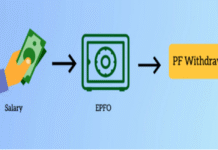Currency trading is rapidly becoming one of the most popular financial activities in India. Also known as forex or foreign exchange trading, it allows traders to profit from movements in currency values such as USD/INR or EUR/USD. As more people show interest in this global market, understanding how to start trading, the regulatory framework, and the key benefits becomes essential for trading safely and successfully.
What is Currency Trading?
Currency trading involves buying one currency and selling another simultaneously. These currencies trade in pairs such as USD/INR, EUR/USD, or GBP/USD. Traders speculate on whether one currency will strengthen or weaken relative to its pair.
In India, forex trading has become more accessible due to online platforms, lower capital requirements, and quick trade execution. However, understanding the basics of how currency pairs work and what moves currency rates is necessary before entering the market.
If you are new to financial markets, you might also find it helpful to read about how the stock market functions, which builds a foundation for understanding trading in general.
How to Start Trading in Currency Markets
Many beginners want to know how to start trading currencies in India but are unsure where to begin. Here is a simple guide to help you start confidently.
Educate Yourself
Learning the fundamentals of currency trading is the first step. Understand concepts like pips, lots, spreads, leverage, and macroeconomic factors affecting exchange rates. Many brokers offer demo accounts where you can practice trading risk-free.
You can also explore technical analysis basics to understand how chart patterns and indicators support decision-making.
Choose the Right Currency Trading Platform
Select a SEBI-regulated broker that provides access to currency derivatives. Look for essential features like charting tools, economic calendars, and reliable support.
To compare options, you may want to read how to choose the best trading platform in India.
Open a Trading Account
To begin trading, open a trading and demat account with your selected broker and complete KYC formalities. Most brokers offer streamlined onboarding processes online.
Understand Currency Pairs Available in India
Indian traders can trade the following INR-based pairs: USD/INR, EUR/INR, GBP/INR, JPY/INR.
Additionally, cross-currency pairs like EUR/USD, GBP/USD, and USD/JPY are also permitted.
For deeper learning, browse topics like factors that influence USD/INR movement.
Learn Technical and Fundamental Analysis
Technical analysis involves studying indicators and price charts, while fundamental analysis focuses on central bank policies, inflation rates, geopolitical events, and global economic conditions.
Combining both methods helps you build strong trading strategies.
Deposit Funds for Trading
After completing your account setup, deposit the amount you’re comfortable risking. Forex trading involves leverage, so it’s important to use smaller amounts initially to avoid large losses.
Learn more about risk management strategies for traders, which can help you trade responsibly.
Begin Trading
Once your account is ready, start placing buy or sell orders based on your market research. Use tools like stop-loss and take-profit to manage risk effectively.
Regulations Governing Currency Trading in India
Currency trading in India is strictly regulated by the Reserve Bank of India (RBI) and the Securities and Exchange Board of India (SEBI). To trade legally and avoid penalties, it is important to understand the regulatory framework.
Approved Trading Pairs
SEBI permits trading only in specific INR-based and cross-currency pairs. Trading in unapproved international currency pairs through offshore platforms is illegal for Indian residents.
Authorized Platforms
Trading must be carried out on recognized exchanges such as NSE, BSE, and MSEI. Unregulated foreign forex websites are banned in India.
Read more about differences between NSE and BSE to understand market structures.
Leverage Rules
Indian brokers offer controlled leverage to prevent traders from taking excessively risky positions. While leverage enhances profitability, it can also magnify losses.
Taxation of Forex Trading
Profits from currency trading are taxable and considered speculative income. Traders should maintain records of all trades and consult a tax professional for guidance.
Prevention of Fraud and Malpractices
The Indian regulatory system is designed to prevent insider trading, manipulation, and unauthorized trading, ensuring a fair environment for all traders.
Key Advantages of Currency Trading
Currency trading offers numerous advantages, especially for traders looking for global exposure and flexible trading opportunities.
High Liquidity
The forex market operates 24 hours, allowing traders to enter or exit positions instantly with minimal slippage.
Low Capital Requirement
Compared to equities or real estate, currency trading requires lower initial capital, making it accessible for beginners learning how to start trading.
Leverage Options
Leverage allows you to control larger positions with a smaller deposit. However, it should be used carefully to avoid significant losses.
Multiple Trading Strategies
You can choose from various strategies like scalping, day trading, swing trading, or long-term position trading—each offering unique opportunities depending on your goals.
Hedging Opportunities
Businesses and investors use currency trading to hedge exchange-rate risks in international transactions.
Exposure to Global Markets
Trading currencies connects you to global economic events, creating opportunities based on interest rate decisions, inflation data, geopolitical tensions, and more.
Conclusion
Currency trading in India is an excellent way to diversify your portfolio and participate in global markets. Understanding how to start trading, following SEBI and RBI regulations, and implementing solid risk management strategies are essential for long-term success.
While the forex market offers high profit potential, success depends on discipline, research, and continuous learning. With the right knowledge and a responsible approach, currency trading can become a powerful addition to your financial journey.







































